The Krysalis OT80 (2019): Around the OT world in 80 ways!

Eighty inspirational ways around the world in which occupational therapy (OT) has advanced or influenced brain injury rehabilitation.
In the 10-day lead up to World Occupational Therapy Day on 27 October every year, we celebrate 80 heroes and happenings making occupational therapy history around the globe.
The definitive 2019 Krysalis OT80 list is here.
In 2019, we launched our first Krysalis OT80; a voyage of discovery in which we journeyed back through centuries to the very origins of the occupational therapy profession.
Over the next ten days, we uncovered unassuming innovators, plucky pioneers and a myriad of curious minds motivated by a desire to improve and accelerate neurological and occupational rehabilitation.
We also encountered brave survivors and their families, including a mother whose unwavering belief in her brain-injured son, helped his new dreams come true.
We shared eight of our discoveries every day, with the final eight revealed on 27 October to coincide with World Occupational Therapy Day.
But because it was such a thrilling voyage, and there was so much more to discover, we decided to do it every year. Enjoy the ride!

No. 80
Where else but the birth of OT: 15 March 1917, at Consolation House, Clifton Springs, New York; the first meeting of The National Society for the Promotion of Occupational Therapy: http://www.otcentennial.org/100-events/1917
No. 79
The reputation of an entire profession was hanging on doctor’s daughter, Peg (Margaret Barr) Fulton MBE (1900-1989) when she became the UK’s first Occupational Therapist in 1925, having qualified in the US. So how did she perform? Find out here: Fulton, Margaret Barr
No. 78
The first UK school of occupational therapy opened its doors in Bristol in 1930, courtesy of OT trailblazer Dr Elizabeth Casson whose legacy lives on here: https://elizabethcasson.org.uk
No. 77
“The essence of occupational therapy is in understanding the value of occupation despite the disabilities.” Link: https://www.krysalisconsultancy.co.uk/resources/item/acquired-brain-injury-and-complex-behaviour-in-the-community-setting
No. 76
 It is 1970s America and OT is taking a political turn: The American Occupational Therapy Political Action Committee (AOTPAC) is established and officially launches in 1978. One of AOTPAC’s purposes is “to encourage the candidacy and election of qualified national office holders, regardless of party affiliation, in order to promote decision-making responsive to the public need for health care and services, especially as pertaining to occupational therapy services.”
It is 1970s America and OT is taking a political turn: The American Occupational Therapy Political Action Committee (AOTPAC) is established and officially launches in 1978. One of AOTPAC’s purposes is “to encourage the candidacy and election of qualified national office holders, regardless of party affiliation, in order to promote decision-making responsive to the public need for health care and services, especially as pertaining to occupational therapy services.”
No. 75
Read about Denise and the role she has played in her son’s journey of recovery following brain injury here. https://www.krysalisconsultancy.co.uk/what-we-do/chris-and-denise
No. 74
It is 1974 and the British Association of Occupational Therapists (BAOT) is born! Just four years later, BAOT launches the Royal College of Occupational Therapy as a charity. Meet them here: https://www.rcot.co.uk/
No. 73 “Elusive icon” Dr Gary Kielhofner (1949 - 2010) had a “passion for new knowledge” that could change how humans think and act. What he learned changed humans across the world. A true OT “visionary”. Read more here
 No. 72
No. 72
A second mention for Dr Gary Kielhofner but this time it's his incredible brainchild which grew to become one of the world’s most popular OT guides to human behaviour. Welcome to MOHO, The Model of Human Occupation is available here. MOHO is remarkable and it could have appeared on our list 80 times itself!
No. 71
“Occupational therapists understand the power of participation – and the influence and importance of the social environment on independence and wellbeing.” A quote from our Clinical Director Jo Throp. It speaks for itself, doesn't it?
No. 70
Another nod to Jo but this time it's the university where, for her, it all began: The School of Occupational Therapy at the University of Southampton.More about the specialist course and the amazing Southampton university here.
No. 69
We’re so happy with My Therappy! This inspiring NHS ‘toolkit’ is packed with over 100 tested phone and computer apps to aid recovery. [2024 update: My Therappy is no longer an existing site]
No. 68
“The time will come when diligent research over long periods will bring to light things which now lie hidden.” Seneca, Roman Philosopher (c.4BC – AD65). There’s nothing like a bit of worldwide brain mapping to bring ‘things’ to light, especially when we’re all invited to take part! Check out the amazing Eyewire: https://blog.eyewire.org/
No. 67
 It is easy to feel hidden in a huge world after a brain injury, which is why we applaud Brain Injury Group or BIG; a UK charity that’s working hard to “empower the severely brain injured and their families via support, understanding and a network of care”. More about their inspiring work here: https://www.braininjuryisbig.org.uk/
It is easy to feel hidden in a huge world after a brain injury, which is why we applaud Brain Injury Group or BIG; a UK charity that’s working hard to “empower the severely brain injured and their families via support, understanding and a network of care”. More about their inspiring work here: https://www.braininjuryisbig.org.uk/
No. 66
The physicians have their Hippocratic Oath and it’s high time OTs had something similar! So said the RCOT this year in a further bid to advance the profession…and we agree! We make our pledges here:https://www.krysalisconsultancy.co.uk/resources/item/rcot-pledges-for-our-profession Pledges for our profession is number 66 on the #KrysalisOT80
No. 65
It is a call to action! ‘Occupational therapists go forward with confidence, recognise and celebrate the unique value of our profession and ‘occupation focus’ of our client-centred profession.’

No. 64
We’re making a real show of the next eight inspirational OT ways around the world, starting with the RCOT's Annual Conference 2019, 'Inspiring, Informing, Involving'. Held in June at the fabulous International Convention Centre, Birmingham, it really was a showpiece event that highlighted so much that is incredible about occupational therapy. So many amazing OTs all in one place - it was almost too good to be true! Highlights of the event are available here: RCOT Conference highlights 2019
No. 63
A big round of applause for Clinical Lead OT, Anita Cooper for her “outstanding contribution” in the creation of an all-new degree/apprenticeship for OT and physiotherapy; they earned a coveted RCOT Merit Award this year. More on Anita here: https://www.rcot.co.uk/news-and-events/awards-and-funding/merit-and-fellowship-awards and https://www.spaldingtoday.co.uk/news/royal-college-to-honour-outstanding-spalding-health-professional-9061526/
No. 62
It’s all about performance! A quote - and a reminder that we should celebrate our skills more! “Occupational therapists are skilled in performance analysis or how we perform while completing activities…bending, reaching, moving, searching, locating, choosing and gripping; elements that when brought together as a whole = function and function = independence.” Jo Throp, Krysalis Clinical Director.
No. 61
The Occupational Therapy Show, held at the NEC, Birmingham in November 2019, is the only FREE national event dedicated to Occupational Therapists! It had to make the #KrysalisOT80 2019 list didn't it?! Exhibitors, speakers, OT awards and so much more - this show had it all and next year's promises to be just as exciting. More info on the OT show can be found here: The OT Show
No. 60
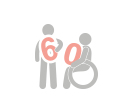 Polished performance reviews: it takes precise tools to analyse an individual’s performance, or their ability to carry out the fundamental activities of daily living. More on these key OT tools here: https://www.krysalisconsultancy.co.uk/services/documentation
Polished performance reviews: it takes precise tools to analyse an individual’s performance, or their ability to carry out the fundamental activities of daily living. More on these key OT tools here: https://www.krysalisconsultancy.co.uk/services/documentation
No. 59
Encore to the UK Acquired Brain Injury Forum for launching a national film awards event to raise awareness of neurorehabilitatin following an acquired brain injury. Prepare to be astonished by last year’s winning films. (2019 winners to be announced next month!): https://ukabif.org.uk/page/UKABIFFilmAward2019
No. 58
Films, stories, songs and poems exploring the lived experiences of others are making a big impact in occupational therapy efforts to transform lives, as we discovered at the 2019 HeadFirst conference. More about that and the discoveries of Dr Charlie Whiffin and Dr Caroline Ellis-Hill here: https://www.krysalisconsultancy.co.uk/resources/item/humanising
No. 57
"Occupational performance, occupational experience and participation in activities arise from within individuals as a result of their environment, their unique roles, their value systems, their patterns of living and their experiences from the past, present and future.
“The essence of occupational therapy is in understanding the value of occupation despite the disabilities.”
Hidden disability, hidden ability

No. 56
We are heading ‘Down Under’ now, where Australian brain injury researchers are reaching deeper into the brain than we’ve ever seen before...and coming up with some crucial social skills connections. More here: https://www.krysalisconsultancy.co.uk/resources/item/brain-injury-and-social-skills
No. 55
“Occupational therapy is about understanding the individual’s view of their world which now, due to the consequences of their brain injury or disability, may have changed. It is only by taking care to understand their view that intervention can be described as truly person-centred.” Jo Throp, Krysalis Clinical Director.
No. 54
There are OT oceans out there to explore and what better way than with the camaraderie of the WFOT’s OTION online community. Advice, information and encouragement shared by OTs across the world! Find out the latest here: https://otion.wfot.org/
No. 53
Nice one, Norway! Researchers there are raising the roof on risk assessment methods with a call for consistent standards to ensure vulnerable people are kept safe. More here: Neuro OT and patient safety
No.52
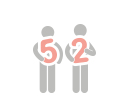 What a wonderful OT world! OTs across the globe share pictures of their celebrations on World Occupational Therapy Day last year. Happy snaps here: https://www.yogile.com/wdcya4ikbsr#41s
What a wonderful OT world! OTs across the globe share pictures of their celebrations on World Occupational Therapy Day last year. Happy snaps here: https://www.yogile.com/wdcya4ikbsr#41s
No. 51
‘To keep the body in good health is a duty...otherwise, we shall not be able to keep our mind strong and clear.’ Buddha. (Sent from a VIP to OTs in Japan on WFOT Day 2018: https://www.yogile.com/wdcya4ikbsr/016252326l/share/?vsc=)
No. 50
Who else but the WHO on this who’s who list of world OT wonders! It’s been 50 years since The World Health Organisation (WHO!) and the World Federation of Occupational Therapists (WFOT) teamed up. Find out how they’re taking world health and humanity to new highs here: https://www.wfot.org/about/partners
No. 49
At 09:26 pm on 14 April 2016, a magnitude 7 earthquake hit the Japanese city of Kumamoto (est. population 740,000) and was followed by six more in the ensuing 36 hours. Within 10 hours of the first quake, and with the injury and death toll rising, the Japan Rehabilitation Assistance Team, including volunteer OTs, mobilised to help the survivors. More about these unsung OT heroes here: http://www.jaot.or.jp/en/DRA.html https://www.theatlantic.com/photo/2016/04/search-rescue-and-recovery-after-japan-earthquakes/478707/ https://www.sciencedirect.com/science/article/pii/S1877065718310285

No. 48
"Only those who will risk going too far can possibly find out how far one can go!" Thomas Stearns Elliot, cited at the 2019 European Congress of Neurorehabilitation in Budapest, Hungary earlier this month. For more about what went on: https://www.ecnr-congress.org/
No. 47
The World Congress for Neurorehabilitation ensures OT advances are shared across the globe. France hosted the 2019 gathering. More here: https://www.wcnr-congress.org/
No. 46
Packed full of information and experiences related to brain and spinal injury, this is a handy resource, updated annually, for families, OTs, allied healthcare professionals and legal teams: https://issuu.com/sevenstarmedia/docs/b_si_digital_version__all_pages_
No. 45 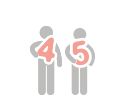
We love Minds Behind the Brain; a book charting brain discovery since Egypt’s Third Dynasty. OTs will particularly love Chapter 7! Find it here: https://www.oxfordscholarship.com/view/10.1093/acprof:oso/9780195181821.001.0001/acprof-9780195181821-chapter-7
No. 44
Cheers to the Acquired Brain Injury Alliance for its campaign to make ‘rehabilitation prescriptions’ the norm for patients leaving hospital. The campaign is backed by no less than 11 UK professional organisations, including the RCOT. More here: https://www.abialliance.org/campaigns
No. 43
Keeping a constant eye out for clinical studies and other research advancing neurorehabilitation are Giorgio Sandrini at the University of Pavia, Italy, and Ross D Zafonte at the US’s Harvard Medical School; both Editors for the Frontiers discovery journal series: https://www.frontiersin.org/journals/neurology/sections/neurorehabilitation
No. 42
“Our view of the world is unique to us as individuals. Occupational Therapists talk about the concept of ‘doing’ in the context of activity and, for all of us without a disability, the experience of living and doing is fluid and effortless. This is something we take for granted.” Jo Throp, Krysalis Clinical Director.
No. 41
Here’s to the science that debunks myths! Lengthy bed rest after brain injury? Really? https://www.krysalisconsultancy.co.uk/resources/item/activity-after-brain-injury
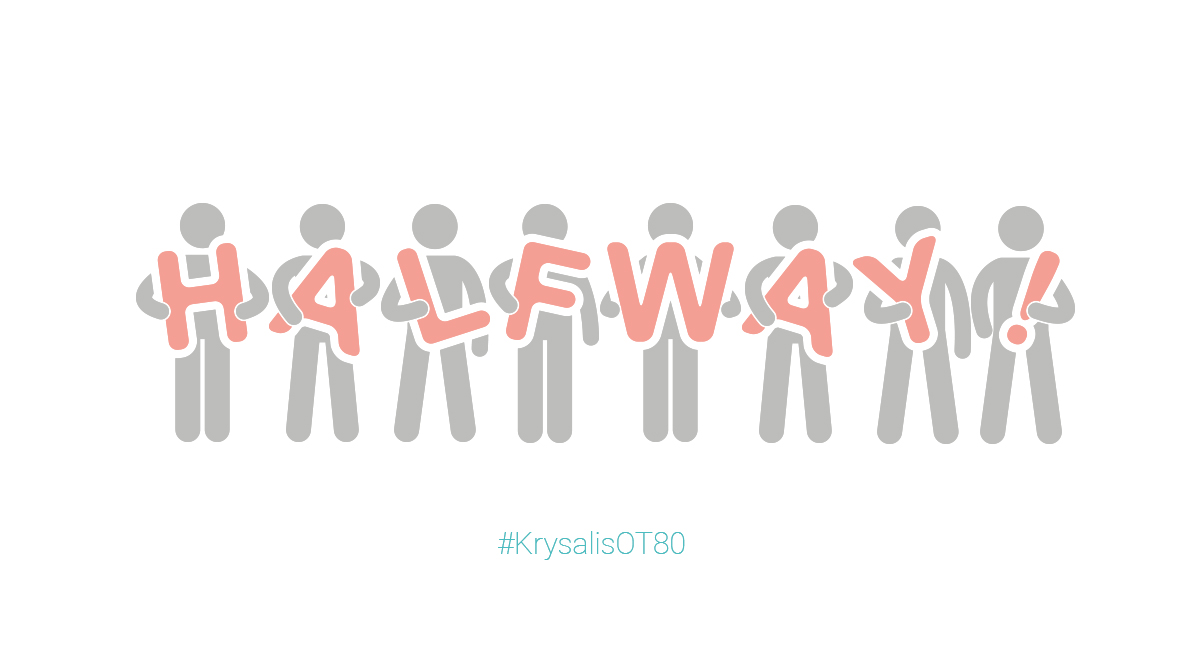

No. 40
From OT to OBE! Named in this year’s New Year’s Honours list, Suzanne Rastrick, the NHS’s Chief Allied Health Professions Officer, qualified as an Occupational Therapist in 1986. More about her outstanding work here: https://www.rcot.co.uk/news/meet-rcot2019-speakers-suzanne-rastrick
No. 39
Traumatic brain injury in childhood didn’t stop this 43-year-old American from carving out a career in broadcast programming. Inspiration and information about “living successfully” after brain injury here: https://brokenbrilliant.wordpress.com/
No.38
It has been seven years since the International Initiative for Traumatic Brain Injury Research (InTBIR) launched a worldwide “big data” hunt to improve brain injury outcomes “and lessen the global burden of TBI by 2020”. The InTBIR team meet this week to share discoveries so far! Here: https://meetings.ninds.nih.gov/Home/Agenda/25739
No.37
“An evidence-based framework should be used to guide occupational therapy assessment and analysis of behaviour and function using a top down approach, guided by client goals.” Jo Throp, Krysalis Clinical Director.
No. 36
There are mountains of books to climb on our OT voyage of discovery, including 2,400-plus on occupational therapy and brain injury at “the world’s largest site for readers and book recommendations” here: https://www.goodreads.com/search?q=occupational+therapy and https://www.goodreads.com/search?q=brain+injury
No. 35
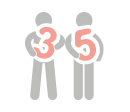 “From one brain injury survivor to another: The more we can raise awareness and public understanding, the brighter we can make the future for all brain injury survivors and caregivers.” British blogger, Michelle Munt is spreading her support net across the world: https://www.jumbledbrain.com/
“From one brain injury survivor to another: The more we can raise awareness and public understanding, the brighter we can make the future for all brain injury survivors and caregivers.” British blogger, Michelle Munt is spreading her support net across the world: https://www.jumbledbrain.com/
No. 34
Never under-estimate the power of occupation…or the population of global online community, The OT Hub! Its 6,600 members span 161 countries and include practitioners, students, patients and clients. Check out the chat here: https://www.theothub.com/
No. 33
British Neuroscientist Dr Adrian Owen is on a ‘consciousness quest’ in Canada having harnessed new scanning technology to communicate with brain injured people in a minimally conscious state. His astounding work earned him an MBE this year. More about him here: https://www.ctvnews.ca/health/into-the-gray-zone-details-journey-to-tap-into-consciousness-of-vegetative-patients-1.3476597

No. 32
Companion to expert OT companions, and celebrating a century of professional occupational therapy, Willard and Spackman’s Occupational Therapy handbook is an OT’s go-to guide. Find it here: https://books.telegraph.co.uk/Product/Barbara-Schell/Willard-and-Spackmans-Occupational-Therapy/22560379
No. 31
OT altruism in action! This is how OTs provide vital occupational therapy support to local and middle-income countries across the world. More on these unsung and unseen heroes here: https://twitter.com/OTFrontiers?s=17 and https://www.facebook.com/otfrontiers/ and https://www.otfrontiers.co.uk/
No. 30
 OT 'specialist sections' are leading from the front ...and we're proud to say Krysalis Clinical Director, Jo Throp plays a very small part on the RCOT's National Executive Committee. The 'Specialist Section - Neurological Practice' is a beacon for Neuro OT's and also influences national policymaking, New members are always welcome! The fabulous RCOT NP is our Krysalis OT 80 number 30! More about their work here: https://twitter.com/rcot_np?lang=en and https://www.rcot.co.uk/about-us/specialist-sections/neurological-practice-rcot-ss
OT 'specialist sections' are leading from the front ...and we're proud to say Krysalis Clinical Director, Jo Throp plays a very small part on the RCOT's National Executive Committee. The 'Specialist Section - Neurological Practice' is a beacon for Neuro OT's and also influences national policymaking, New members are always welcome! The fabulous RCOT NP is our Krysalis OT 80 number 30! More about their work here: https://twitter.com/rcot_np?lang=en and https://www.rcot.co.uk/about-us/specialist-sections/neurological-practice-rcot-ss
No. 29
Collaboration is key in complex brain injury cases to ensure the best possible outcome for survivors. Enter the British Association of Brain Injury and Complex Case Management (BABICM) and the Case Management Society UK (CMSUK): https://www.krysalisconsultancy.co.uk/resources/item/babicm-2019; https://www.babicm.org/; https://www.krysalisconsultancy.co.uk/resources/item/cmsuk-2018-award-winners; https://www.cmsuk.org/
No. 28
“Alexa? How much will a 2m by 2m home extension cost to keep you in?” Perhaps the biggest question asked in 1966 with the launch of the first smart home automation system. Weighing in at 800lbs, the 6ft by 6ft Echo IV paved the way for today’s assistive technology: https://computerhistory.org/blog/the-echo-iv-home-computer-50-years-later/ and https://www.who.int/phi/implementation/assistive_technology/great_summit/en/
No. 27
Innovative and inspirational thinkers work in tandem with OTs! We like 2019 award-winning wheelchair specialists, Wheel of Health https://www.wheelofhealth.co.uk; home adapters, Design for Independence https://designforindependence.co.uk/; Children’s Therapy Solutions https://www.childrenstherapysolutions.co.uk/; and fatigue managers, South Coast Fatigue https://www.southcoastfatigue.co.uk.
No. 26
Prepare to be amazed by Mind Maze; a virtual reality headset that repairs broken connections in the brain to help rehabilitate stroke victims. (We’ll let you know soon how it went when a Krysalis OT client volunteered to be ‘mind mazed’!) https://www.theguardian.com/personal-investments/ng-interactive/2019/apr/23/stroke-rehabilitation-mindmaze-virtual-reality and https://www.mindmaze.com/
No. 25
From a diving accident to a kitchen fall; we keep counting the ways in the wake of injury OTs are changing lives: https://www.theguardian.com/social-care-network/2016/jun/30/occupational-therapy-changed-my-life; http://www.otcentennial.org/article/not-only-did-you-fix-my-hand-you-changed-my-life-client-story; https://www.careopinion.org.uk/opinions?tcx%5B0%5D.tname=occupational+therapy

No. 24
A right royal profession! Princess Anne, the Princess Royal, became a patron of the RCOT in 1986. More about HRH here: www.royal.uk/the-princess-royal. And here’s what happened when she met a pioneering Sheffield OT: https://ot-magazine.co.uk/sheffield-occupational-therapist-honoured-by-hrh-princess-anne/
No. 23
Translated into more than 35 languages and used in over 40 countries, the evidence-based Canadian Occupational Performance Measure (COPM) enables people to explore the impact of their everyday living challenges and, in response, set goals to overcome them. More here: http://www.thecopm.ca/
No. 22
The knock-out gas that’s proving a real knock out in brain injury prevention! But what’s it got to do with Superman? Find out here: https://www.krysalisconsultancy.co.uk/resources/item/brain-injury-brought-to-a-halt-by-68-year-old-anaesthetic
No. 21
 They have spent two decades sharing what they’ve learned about brain injury, and they’ve got the books to prove it! US publishers, Lash and Associates hope to help survivors and their families “understand and heal”. Find them here:https://www.lapublishing.com/blog/category/brain-injury-blogs/
They have spent two decades sharing what they’ve learned about brain injury, and they’ve got the books to prove it! US publishers, Lash and Associates hope to help survivors and their families “understand and heal”. Find them here:https://www.lapublishing.com/blog/category/brain-injury-blogs/
No. 20
What is the best brain possible after brain injury? On inspiring missions to find out are US blogger, Debbie Hampton and the Brain Injury Society of Toronto, Canada. Their wise words here: https://thebestbrainpossible.com/ and https://torontobraininjuryblog.wordpress.com/2019/08/25/how-to-redefine-yourself-after-brain-injury/
No. 19
Pain, pain, go away...it can have a major impact on life after brain injury which is why pain and new ways to manage it are a top OT priority. What are the solutions so far? Find out here: https://www.krysalisconsultancy.co.uk/resources/item/brain-injury-pain-management
No. 18
The answers are out there! A three-year UK-led international research project to better understand how brain inflammation causes later-life problems is just months away from completion. https://gtr.ukri.org/projects?ref=MR%2FR005036%2F1 and https://www.era-learn.eu/network-information/networks/neuron-cofund/call-for-proposals-for-european-research-projects-on-external-insults-to-the-nervous-system/international-collaboration-on-neuroinflammation-in-traumatic-brain-injury-icon-tbi
No. 17
Hundreds of thousands of wounded World War One soldiers living in the “gloom and despair” of Army hospitals across Europe, the US and Canada were “reconstructed” to create new lives for themselves through the power of OT. More here: https://pdfs.semanticscholar.org/0242/4265cb40993cdbc717ac128dcf2a198c6b03.pdf and https://pdfs.semanticscholar.org/24fc/e27b9b252627b6f27f1f8cbb2ed12692898a.pdf

No. 16
It’s a major goal of many stroke survivors, but why do less than half of them manage to make it back to work? The four-year RETAKEStroke project, led by Drs Kate Radford and Jain Holmes of Nottingham University, is meeting this challenge head-on: https://twitter.com/RETAKEStroke and https://www.nottingham.ac.uk/research/groups/longtermconditions/vocational-rehabilitation/retake/index.aspx
No. 15
“The almost total obliteration of the early part of one life brings a unique perspective to the table.” Krysalis blogger, Anne Rickett’s 19-year battle with brain injury is reaching global heights in her drive to help other survivors. More on her thoughts and projects here: https://www.globalbia.org/ and https://www.krysalisconsultancy.co.uk/resources/item/nutrition-and-diet-after-brain-injury
No. 14
Ringing London bells from a valley in South Wales is MP Chris Bryant, champion of brain injury awareness in the UK Parliament. More about his campaign for change here: https://www.acnr.co.uk/2018/10/appg-on-abi-launches-report-on-acquired-brain-injury-and-neurorehabilitation/
No. 13
OTs “may be only a tiny percentage of the health and care workforce, but they punch well above their weight in terms of their impact on people’s lives.” Richard Humphries, now Senior Fellow, Policy, at the UK’s health and care think tank, The King’s Fund. More on this and the RCOT’s moves to redeploy OT into primary care here: https://www.theguardian.com/social-care-network/2015/jan/27/impact-of-occupational-therapistsand https://www.rcot.co.uk/news/rcot-responds-kings-fund-report-funding-mental-health
No. 12
Unrecognised malnutrition “exists not in rural slums or urban ghettos, but in the private rooms and wards of big-city hospitals”. Is this still true today? More on why nutrition is intrinsic to OT here: https://ajot.aota.org/article.aspx?articleid=1883550 and https://www.krysalisconsultancy.co.uk/resources/item/nutrition-and-rehabilitation
No. 11
Helping our heroes to be who they are! From family homes to war zones, occupational therapy makes an impact every day on someone’s life. More here: https://www.krysalisconsultancy.co.uk/resources/item/family-matters and https://creative-force.helpforheroes.org.uk/, and read about First World War OT Lena Hitchcock’s ‘Great Adventure’ here: https://ulir.ul.ie/handle/10344/5763
No.10
Activity and inclusion: an OT’s idea of a perfect match! That’s why we’re cheering on the Activity Alliance and its vision of a time when disabled people are active for life. The charity marked its 21st anniversary this year. More about its wonderful work here: http://www.activityalliance.org.uk
No. 9
Forty years ago, this week, marked the birth of the one the UK's brightest lights in brain injury awareness and support. Headway- the brain injury association fields over 8,500 enquiries a year and influences national policy on brain injury rehabilitation. (Krysalis will be supporting the charity’s annual Hats for Headway fundraiser in 2020!) Find out more here: https://www.headway.org.uk/ and https://www.headway.org.uk/about-headway/events-and-conferences/hats-for-headway-day/,

No. 8
We’re following the leader! And Dr Jenny Preston MBE is one of the biggest leaders of change in neurological rehabilitation, earning her one of just five RCOT fellowship awards for exceptional service this year. More about her outstanding achievements here: https://www.rcot.co.uk/news/celebration-excellence-occupational-therapy-awards-2019 and https://www.rcot.co.uk/files/dr-jenny-preston-leadership-journey-2018
No. 7
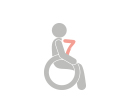 Our Neurological Occupational Therapist, Zoe was brave enough to be the first Krysalis team member to be filmed for our series of case studies raising awareness of brain injury rehabilitation. She speaks candidly here about why OT became her career, and how unexpected illness gave her a different perspective on health care services: https://youtu.be/ZPU4yfimrkM
Our Neurological Occupational Therapist, Zoe was brave enough to be the first Krysalis team member to be filmed for our series of case studies raising awareness of brain injury rehabilitation. She speaks candidly here about why OT became her career, and how unexpected illness gave her a different perspective on health care services: https://youtu.be/ZPU4yfimrkM
No. 6
Know me, know my story: brain injury survivor, Chris’s open and frank account is an inspiration to others, and proof of the power of participation and person-centred activities provided through occupational therapy. Meet Chris here: https://www.youtube.com/watch?v=ANqCoWIMhmA&list=PLixfZG36rZPcEFZachusVOhowcYbM61AR&index=12
No. 5
It began with: “Jo I want to write a book about my stroke. What do you think?” Sometimes we don’t recognise what we are capable of. Sometimes a life-changing disability provides an opportunity to acknowledge hidden talents we never knew we had. The value of OT is about encouraging individuals to realise their hidden potential. Number 5 goes to stroke survivor and published author, Derek Williams and his OT of 14 years ago, Krysalis Clinical Director, Jo Throp. More here: https://www.amazon.co.uk/Return-Ticket-Please-Derek-Williams/dp/1844014584
No. 4
We will be seen and heard! Efforts to uncloak the invisibility of brain injury and give voice to the immense impact of rehabilitation are gaining ground thanks to the 2019 National Rehabilitation Campaign, backed by the UK’s Acquired Brain Injury Forum, the Society for Research in Rehabilitation, the British Society of Rehabilitation Medicine, and the Independent Neurorehabilitation Providers Alliance. More here: https://www.healthawareness.co.uk/rehabilitation/rehabilitation-finding-a-voice/?utm_source=ukabif%2520
No. 3
When the brain functions effortlessly, we take everyday activities for granted; completing them without a second thought. Occupational Therapists understand the complexities and science of human function. Here, Krysalis Neurological OT, Zoe talks about the everyday activity of shopping following brain injury: https://vimeo.com/298953268
No. 2
Enduring and renewing: the essence of occupational therapy is reflected in the new emblem of the RCOT; the mythological bird, the phoenix. And like the unflinching phoenix, occupational therapy just keeps on rising! https://www.rcot.co.uk/news/rcot-launches-new-member-logo
No. 1
Happy World Occupational Therapy Day! Our top spot goes to all Occupational Therapists everywhere in celebration of how we facilitate growth through adversity and how our understanding of the importance of participation and activities defines the uniqueness of individuals. OTs really do realise potential and transform lives...every day!

Without doubt, every inspirational entry in our list is there on merit. They have influenced occupational therapy from near and far. We were proud to include so many amazing people whose hard work to help others in our society has led to huge strides in clinical practice. Most importantly, they have benefited people in need.
We have thoroughly enjoyed compiling this list and celebrating an incredible network of fabulous people. We hope you all enjoyed the journey with us.
Remember, you can use the hashtag #KrysalisOT80 to follow all the extras across our social media platforms. The Krysalis OT 80 list will be back in 2020.
To end, here is a quote from our 2019 social media feed that did not make the list but seems a fitting final remark:
 I think probably kindness is my number one. I’ll put it before any of the things like courage, or bravery, or generosity, or anything else. Kindness - that simple word. To be kind - it covers everything, to my mind. If you’re kind that’s it.
I think probably kindness is my number one. I’ll put it before any of the things like courage, or bravery, or generosity, or anything else. Kindness - that simple word. To be kind - it covers everything, to my mind. If you’re kind that’s it. 
British author, Roald Dahl
Thanks for travelling with us.
...Continue your journey by following our twitter feed here.
We are passionate about occupational therapy and neurological rehabilitation. ‘Talking Heads’ is a means of bringing together individuals and professionals interested in brain injury. The blogs, stories, films, current research and news items aim to inform and spark moments of inspiration, reflections and points of discussion.
Follow us and share your opinions and insights on social media using #talkingheads. If you are passionate about occupational therapy and neurological rehabilitation, or have been affected by brain injury, come on in and join the conversation.

